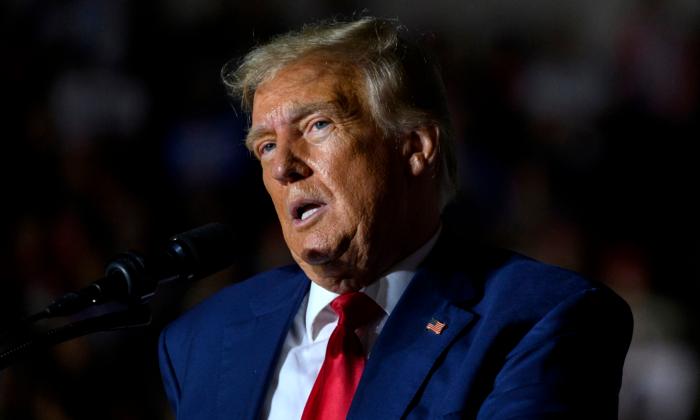Sen. Tom Cotton (R-Ark.) says Washington is finally standing up to the Chinese communist regime’s longstanding aggression against the United States.
The administration has recently increased its actions targeting threats posed by the regime, and Cotton said that criticism of those actions that frame the United States as the aggressor is a mischaracterization.
“So we didn’t start this new set of tensions. We simply chose to fight back against China’s aggressive actions.”
He cited the regime’s theft of U.S. intellectual property, intimidation of self-ruled Taiwan, and hoarding of personal protective equipment related to COVID-19, as examples of the Chinese Communist Party’s (CCP) hostile activities on the world stage.
The Trump administration has sharply dialed up its measures against the regime over a raft of issues, including Beijing’s coverup of the pandemic, theft of American technology, rights abuses in the region of Xinjiang and Hong Kong, and military aggression in the South China Sea.
Over the past few weeks, Washington has ordered the closure of the Chinese consulate in Houston, slapped sanctions on Chinese officials responsible for the suppression of ethnic minorities in Xinjiang, and officially opposed Beijing’s territorial claims and aggressive actions in the South China Sea.
Cotton said the regime had alienated many ordinary Americans through its predatory behavior, such as its unfair economic practices, which led to many U.S. jobs being outsourced to China, and suppression of faith groups in China.
This distrust has “fallen even farther since China unleashed this plague on the world,” he said.
The senator said he had recognized the regime as a threat because “communism is a threat wherever you find it.”
“I don’t know if Xi Jinping gets up and reads ‘Das Kapital’ or the other works of Karl Marx, but there’s no doubt that the Chinese Communist Party remains communist through and through,” Cotton said.
“It’s a one-party power structure where they will ruthlessly hold onto power. There’s really no such thing as a purely private enterprise in China. It is all state-controlled, sometimes directly state-supported or even owned. And of course, they brutally repress minorities and dissidents of all kinds.”
The senator said the United States should move its critical manufacturing away from China to ensure its economic and national security.
“Why, in the information age, would we allow this kind of advanced manufacturing capacity to be based in China, whether it’s pharmaceuticals or semiconductors or telecom or cutting-edge computing, like quantum computing and artificial intelligence?” he said.
“That’s not just vital for our economic prosperity; we can now see it’s vital for our security, our health, and our security from a military standpoint. So it’s essential that we are no longer dependent on China for so many of these vital goods.”






